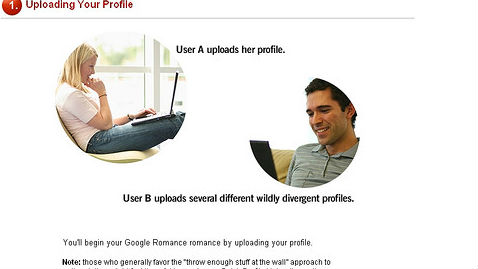18 Ways that Social Media and Technology Might Change your Love Life (Part 2 of 2)

Here are hypotheses 10 through 18 on how social media might change your love life. Click here for Part 1…
ASSORTATIVE MATING ON STEROIDS
Like marries like today. “Assortative mating” is one of the major marriage trends of the last 60 years. We marry people who are more like us in education, career, values and earning potential than ever before.
Online dating services will probably strengthen this trend. Random, face-to-face romantic epiphanies are still going to happen (hopefully), but now there’s the hugely popular alternative of online dating services, whose meticulous surveys can pre-screen out all of the “on-paper” unsuitable candidates, according to our abstract prerequisites and preferences. That means we can marry someone even more like us—or like our on-paper ideal—than if we relied on chance.
EXPANDING THE AFFAIR “GENE POOL”
Extramarital dating sites such as Ashley Madison expand the affair gene pool beyond the risky terrain of a spouse’s home community, office or neighborhood, for better or worse. Their search options remove one of the major social hazards to extramarital sex. A rogue can specify ZIP codes in which to search and find people beyond the obstacle-strewn, danger-ridden radius of a home base.
SELF-DECEPTION MADE EASIER
Online environments might make it easier to deceive a partner, but they also make it easier to be self-deceiving about what we’re up to, and why. Social media provides easy, entirely innocent pretexts for making contact with people whom we’d never be bold or presumptuous enough to call.
NEW WAYS TO HAVE EXTREMELY SAFE SEX
There isn’t much work on the non-pathological, non-addictive, non-exploitative aspects of online erotic life, but there is great potential here. No form of sex is physically safer than an incorporeal cyber-affair. I told a story in my book of a wife who had a cyber-affair and never met her “partner” in person, although they did exchange photos. Their correspondence deepened into an intimate, flirtatious exchange of fantasies. The online world she wove was very safe, empowering sex that overlaid, rather than intruded, on her daily married life. It didn’t ruin her marriage, and she thinks of it as the only genuinely mutual break up she’s ever had. Afterwards life went on, unperturbed by the online affair, which allowed the wife to have a trap door on her melancholy marriage without literally escaping her marriage through a physical affair, or divorce.
GOOGLING TO SWING
In the pre-wired age that now feels like ancient history, spouses who were curious about alternative marital lifestyles such as swinging engaged in cloak and dagger mailings and phone trees, or they risked the social embarrassment of venturing into adult bookstores and so on.
Google makes it risk-free to seek information, in the privacy of home. In the past decade, swinging clubs and swinging have increased, probably as a function of easy access to information, and the ease of finding fellow, curious travelers online, which also tends to normalize what might otherwise feel fringe.
THE ROMANTIC PERMANENT RECORD
As the new communications default, email and texting create a potential Permanent Record or transcript of an entire relationship.
Who knows what effects this might have on intimacy and romance. It could make conflict resolution easier. The timeless “He Said/She Said” argument is now “He Wrote/She Wrote” instead—and what’s more, you can read it right here in the permanent transcript. It’s like having a court stenographer to record the “evidence” for posterity.
Maybe the potentially indelible record makes forgiving and forgetting harder—or easier. Maybe self-consciousness that e-conversations could become a permanent romantic archive will encourage more mannered, considerate, humane and discreet behavior. Although to be honest I don’t see much evidence of that change on Facebook yet.
MULTIPLE LOVER AVATARS
Online games and multiple online lives and accounts allow for fantasy gender-bending, alter egos and avatars. No longer are these fantasy personae confined to our imaginations or our private lives in a journal. The fantasy avatars and alternative personalities can be played out in a virtual but interactive and in many respects real environment online. I’m not a gamer, but so I’m told.
VIRTUAL JANE AUSTENS
Okay, I’ve not seen any evidence of this yet, but, theoretically, the text-based social media world might revive a Jane Austen, 18th-century tradition of epistolary seduction in 21st-century technology. Maybe a potential lover’s capacity to distinguish “its” and “it’s” will outweigh his good looks in the evolutionary game of mate selection; maybe a woman’s charming use of metaphor will matter more than boobs… I can dream…
ANONYMOUS INTIMACY
In online spaces we can have the paradox of anonymous intimacy. We can have intimate discourse without knowing or seeing the other person. Intimate conversation, oddly and probably consequentially, gets decontextualized from a face-to-face relationship.





